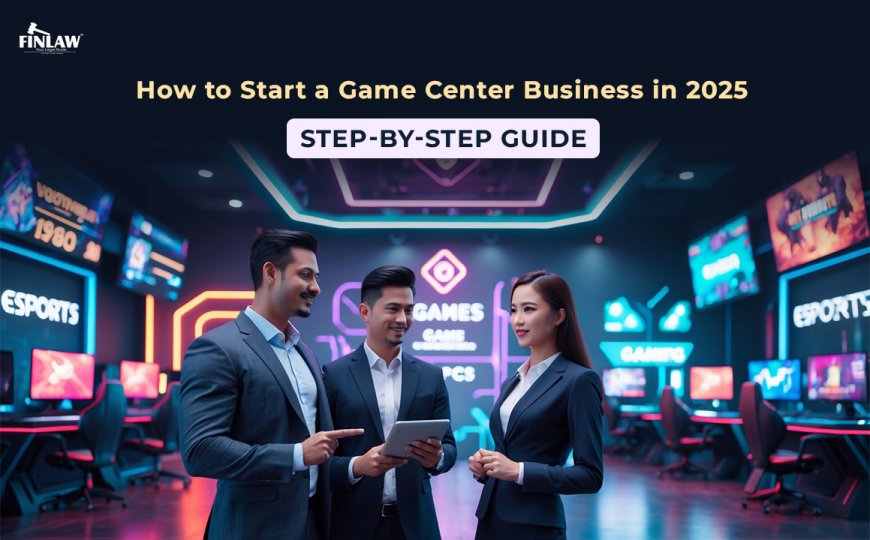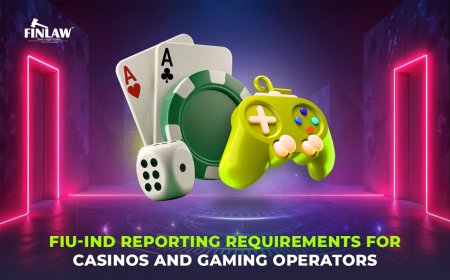How to Start a Game Center Business in 2025: Step-by-Step Guide
Start your game center business in India with this step-by-step 2025 guide. Learn setup, licenses, costs, and marketing strategies.

The gaming sector in India is on a meteoric rise, fueled by a young population, affordable smartphones, and ever-faster internet. By 2025, the organized gaming and esports market is expected to cross USD 1 billion, with standalone game centers—a blend of console gaming, PC esports lounges, VR experiences and family entertainment—becoming increasingly popular. If you’re asking how to start a game center business, this in-depth guide will walk you through every stage—from concept to grand opening and beyond.
1. Understand the Market Opportunity
-
Size & Growth: India’s gaming market is projected to surpass USD 1 billion in 2025 and reach USD 1.4 billion by 2028.
-
Consumer Trends: Rising popularity of esports, VR/AR experiences and social gaming lounges.
-
Competition Landscape: From independent LAN cafés to branded esports arenas—identify gaps in your city or region.
2. Define Your Concept & USP
-
Niche Focus
-
Esports Lounge (high-end PCs, tournaments)
-
Console Café (PlayStation, Xbox, Nintendo setups)
-
Family Entertainment Center (arcade machines, VR pods, board games)
-
Cloud Gaming Hub (leveraging fast 5G/wired internet for low-cost devices)
-
Unique Selling Proposition
-
Early-adopter VR zones, themed décor, gourmet café, partner tie-ups (e.g. gaming merchandise).
-
Community events: weekly tournaments, cosplay nights, workshops.
3. Write a Comprehensive Business Plan
-
Executive Summary: Vision, mission, concept, financial highlights.
-
Market Analysis: Demographics, competitors, pricing benchmarks.
-
Service Offering: Describe gaming options, F&B services, events.
-
Revenue Model: Hourly charges, membership fees, food & beverage margins, sponsorships.
-
Financial Projections: 3–5 year P&L, cashflow, break-even analysis.
-
Risk Assessment: Technical downtime, licensing delays, seasonal demand.
4. Choose the Right Legal Structure & Obtain Licenses
-
Entity Setup:
-
Proprietorship, Partnership, LLP or Private Limited Company (recommended for scaling).
-
Mandatory Registrations:
-
GST Registration (for tax compliance).
-
Trade Licence from Municipal Corporation.
-
FSSAI Licence (if serving snacks/beverages).
-
Fire & Safety Clearance, Environmental Clearance (if required).
-
Music/Public Performance Licence (if playing background music).
5. Secure Funding & Manage Finances
-
Self-Funding: Personal savings or loans from friends/family.
-
Bank Loans & Government Schemes:
-
Mudra Loans, Stand-Up India, CGTMSE for MSME credit.
-
Angel Investors / VC: Present a strong pitch deck highlighting ROI.
-
Cost Breakdown:
-
Rent/security deposit: 30–40% of initial investment.
-
Equipment: 40–50%.
-
Fit-out & décor: 10–15%.
-
Working capital: 10–15%.
6. Select Location & Design Your Space
-
Location Criteria:
-
High footfall (malls, college areas, IT parks, metro corridors).
-
Easy accessibility and parking.
-
Space Planning:
-
Gaming zones (PC, console, VR) with soundproof partitions.
-
Comfortable seating, ambient lighting, café counter.
-
Dedicated tournament stage or streaming corner.
-
Décor & Ambience: Thematic wall art, ergonomic furniture, strong Wi-Fi coverage.
7. Procure Equipment & Technology
-
Hardware:
-
High-performance gaming PCs (Intel i7/Ryzen 7, RTX 30-series GPUs).
-
Latest consoles (PS5, Xbox Series X, Nintendo Switch).
-
VR headsets (Oculus Quest 2, HTC Vive).
-
Networking:
-
Business-grade routers, switches; 100 Mbps+ leased line with fallback.
-
UPS/inverter backup for uninterrupted play.
-
Software & Security:
-
Gaming management software for seat-booking and billing (e.g. GG Circuit).
-
Antivirus, firewall, CCTV surveillance.
8. Hire & Train Staff
-
Key Roles:
-
Managers (operations, events)
-
Game Assistants (technical support)
-
Café Staff (F&B service)
-
Marketing Executive (social media & local outreach)
-
Training:
-
Equipment handling, customer service, safety protocols, basic troubleshooting.
-
Upsell techniques for memberships and food items.
9. Set Pricing, Packages & Memberships
-
Pricing Models:
-
Hourly rates (e.g. ₹60–₹100/hr for PC, ₹40–₹80/hr for consoles).
-
Day passes, evening deals, off-peak discounts.
-
Membership Plans:
-
Monthly/quarterly/annual bundles with premium perks (free tournaments entry, F&B vouchers).
-
Group & Corporate Offers:
-
Birthday party packages, team-building event rates.
10. Launch Marketing & Community-Building
-
Digital Presence:
-
SEO-optimized website focused on “how to start a game center business” and local keywords (“game center in Delhi”, etc.).
-
Google My Business listing with up-to-date photos and reviews.
-
Active social media on Instagram, Facebook, YouTube (streaming events).
-
Local Outreach:
-
Tie-ups with colleges/IT parks, flyers in cafés, local gaming communities (Discord, WhatsApp groups).
-
Events & Tournaments:
-
Weekly open-play nights, monthly open tournaments with small entry fees and prizes.
-
Cosplay, retro gaming, board-game evenings to diversify footfall.
11. Daily Operations & Customer Experience
-
Standard Operating Procedures (SOPs) for opening/closing, equipment sanitisation, cash handling.
-
Customer Feedback Loop: Comment cards, digital feedback forms, review incentives.
-
Maintenance Schedule: Regular hardware checks, software updates, deep-cleaning.
12. Measure Performance & Scale
-
Key Metrics:
-
Footfall (daily/monthly), average revenue per customer (ARPC), membership churn rate.
-
Event participation and social engagement.
-
Continuous Improvement:
-
Upgrade equipment every 12–18 months, introduce emerging tech (cloud gaming pods, AR experiences).
-
Expansion Strategy:
-
Open new outlets in tier-II/III cities, franchising model once brand is proven.
13. FAQs
Q1. How much capital is needed to start a small game center in India?
Typically ₹15–25 lakhs for a 1,200–1,500 sq ft space with 10–15 gaming stations, décor, basic café setup and working capital.
Q2. What permits are mandatory?
Trade license, Online Gaming GST registration, fire-NOC, FSSAI (if serving food), music license (for in-house audio).
Q3. How can I differentiate my center from competitors?
Offer unique experiences, such as VR/AR zones, themed décor, influencer-hosted events, loyalty programs, and tie-ups with game developers.
Q4. Is an online booking system necessary?
Yes—streamlines seat management, pre-payments, peak-hour controls and customer data collection for remarketing.
Conclusion:
Launching a successful game center in India in 2025 requires a blend of market insight, solid planning, strategic location, best-in-class equipment, and community engagement. By following this step-by-step guide on how to start a game center business, you’ll be well-positioned to ride the gaming wave, delight customers and build a profitable, scalable brand.
Begin today—draft your plan, secure your funding, and you’ll be welcoming your first gamers in no time!
What's Your Reaction?



















